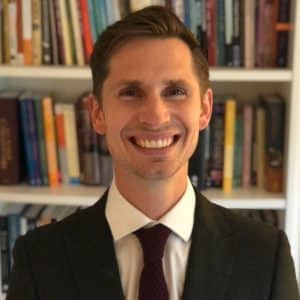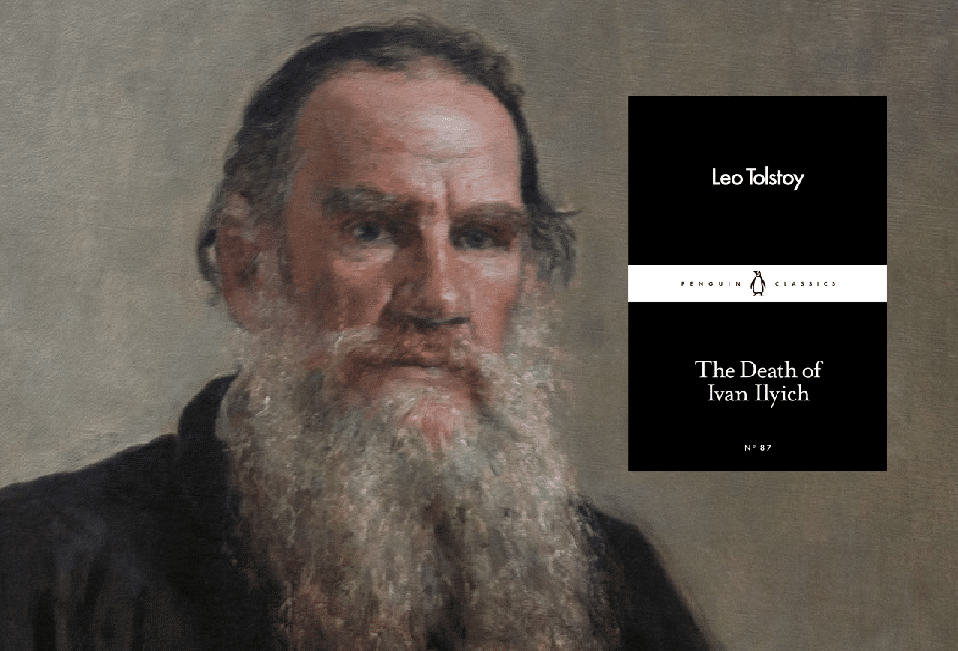 Luke Allen is a GP in Oxford and a global health analyst working in and with many low- and middle-income countries around the world.
Luke Allen is a GP in Oxford and a global health analyst working in and with many low- and middle-income countries around the world.
Born halfway between Moscow and Ukraine’s eastern border in 1828 to aristocratic parents, Tolstoy achieved immediate acclaim with the first book he ever wrote; a semi-autobiographical account of his childhood, written after dropping out of university where he was dubbed “unable and unwilling to learn” by his tutors. He was a master of realism and his unparalleled gift for closely observing universal human experiences allowed his characters to transcend their historical trappings. He trained his keen gaze on the end of life in the 60 pages that constitute The Death of Ivan Ilyich – one of his most celebrated short stories.
The novella begins at the end, with a group of friends considering what they stand to gain from the protagonist’s death. The remainder of the book’s first half tells Ivan Ilyich’s relatively anodyne life story; that of a well-to-do magistrate who diligently climbs the career ladder before being derailed by a mysterious terminal illness in his mid-40s. Right up until the first abdominal twinge, Ilyich never stops to question the rules of social convention, in part because he seems to be winning the superficial game they prescribe.
Tolstoy deftly exposes the banality of a life spent pursuing marriage, parties, an important job, and a large house appointed “with all the things that all people of a certain kind acquire”. His satire – which challenges unthinking conformity to shallow social expectations – has added weight today amidst constant pressure to demonstrate that we are living picture-perfect versions of our ‘best lives’ on social media. Between the lines, Tolstoy argues that a life devoid of deeper (read: religious) purpose is essentially meaningless.
Ilyich’s life story made me reflect on the extent to which I’m satisfied with my own life.
Ilyich’s life story made me reflect on the extent to which I’m satisfied with my own life. And honestly, whilst my family, friends, job, home, and holidays are sources of deep joy, I’ve often asked the question that Tolstoy confronts his readers with here: is there more to life than this? Over the years this question has spurred me to explore faith and shape my work around global health and social justice. I was surprised to see my own wrestling with purpose and fulfilment reflected in Ilyich’s reciprocal accepting contentment.
Existential challenges notwithstanding, the first 20 pages are actually quite slow-going, with the exception of a wonderfully awkward visit to the recently bereaved; “[he] went in, as always happens, with some perplexity about what he was to do there…” and an achingly beautiful portrayal of marital break down; “There remained only rare periods of rare amorousness that came over the spouses, but they did not last long. These were islands that they would land on temporarily, but then they would put out again to the sea of concealed enmity that expressed itself in estrangement”.
The novella starts to pick up when the first symptoms arise: “a strange taste in his mouth and some discomfort on the left side of his stomach”. The discomfort evolves into a ‘consciousness of a constant heaviness’, and finally into pain and attendant ill humour sufficient to provoke his sceptical wife to organise a consultation. “It went as expected; it was as it is always done. The waiting… the tapping, and the auscultation, and the questions calling for predetermined and obviously unnecessary answers, and the significant air, which suggested that you just submit to us, and we will arrange it all.”
Doesn’t that make you wince? How about this; “On the way home he kept going over what the doctor had said, trying to translate all of those complicated, vague scientific terms into simple language and read in them the answer to the question: bad – is it very bad for me, or still all right?”. Ilych’s various doctors all dismiss his questions as inappropriate and irrelevant, focusing instead on differential diagnoses, investigations, and the biomedical intricacies of his presumed condition. I was reminded of DH Lawrence, writing of the doctor’s lust to “wreak his so-called science on me and reduce me to the level of a thing”.
Ilyich needs a clinician to take him seriously and communicate the facts simply and honestly. Instead, he is met by self-important doctors who are more concerned with playing a role or concealing their uncertainty – often by deploying jargon and polypharmacy. I took Tolstoy’s reproaches personally: more than once I’ve caught myself explaining how a disease process works rather than unpacking what it really means for my patient; I find myself constantly resisting the urge to confabulate rather than admit that I don’t know exactly what is going on; and I don’t even know how many times I’ve prescribed a medication primarily to buy time. Tolstoy’s critique called me to greater humility and honesty with my patients.
Tolstoy’s critique called me to greater humility and honesty with my patients.
Inevitably, the medical profession is powerless to arrest or palliate Ilych’s painful decline. Worse – these doctors fail to admit to their powerlessness, instead pursuing ineffective regimes and offering false hope. It enrages me that medics continue to rob patients of a good death through inappropriate and futile attempts to extend life at all costs. Even so, as I read these difficult passages, I noticed that my anger was mixed with a measure of fellow-feeling, born of the recognition that it often requires enormous moral courage to admit our limitations and tell the bald, horrific truth.
In the final pages, the narrative pivots from penetratingly wry social observation to moralistic fable, turning on Ilyich’s Damascene revelation that he has wasted his life slavishly pursuing hollow gongs. Tolstoy wrote the story after his dramatic conversion to Christianity, and the protagonists’ mid-life moral crisis mirrored the author’s own, as documented in My Confession (1884). Tolstoy’s ultimate message is that there is no shame or failure in death, and that we shouldn’t waste our lives chasing vacuous social acceptance.
At the time of writing, Tolstoy had established a global reputation not just as an author but as a leading ethicist and anarcho-pacifist. In addition to five nominations for the Nobel prize for literature (which he never won), he was nominated for the Nobel peace prize three times and corresponded with Gandhi. His later years were characterised by ascetic renunciation of his wealth, social status, private land ownership, and even the copyrights of his earlier works. His criticisms of institutionalised power and religion led to his excommunication in 1901.
Given this context, it’s unsurprising that The Death of Ivan Ilyich packs a powerful punch. On a personal level, Tolstoy challenged me to reflect on profound questions of meaning, purpose and fulfilment. On a professional level, his masterfully observed reproach of doctor-centred medicine called me to engage with my patients from a renewed place of honesty, vulnerability, and humility. By all rights, his descriptions of bad medicine should have graduated from acerbic satire to unfamiliar anachronism a long time ago. My hope is that clinicians in the near future won’t take nearly as much from this book as I did.
Featured book: Tolstoy L, . The Death of Ivan Ilyich. London: Penguin Classics; 2016. ISBN: 9780241251768. RRP: £3.00
Featured photo by Jacqueline Macou from Pixabay






